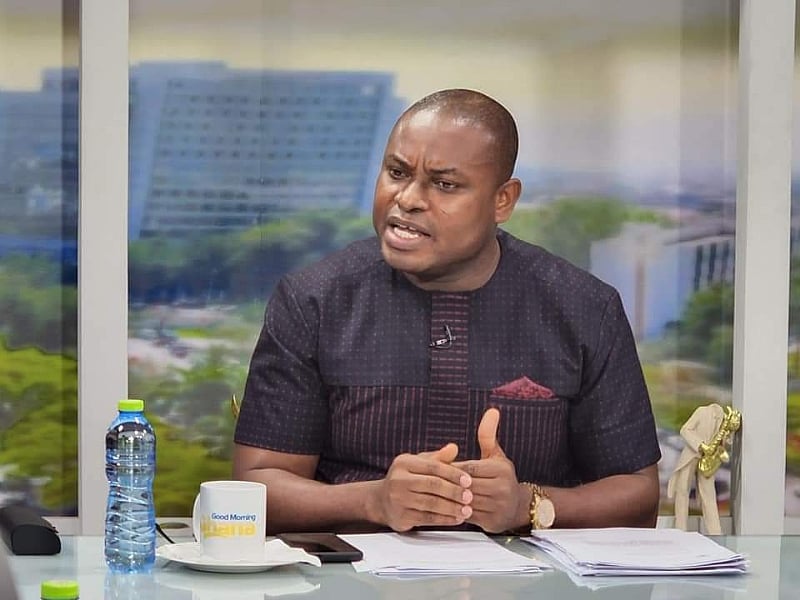The Galamsey Crisis: A Clash of Perspectives on Responsibility and Solutions
Ghana’s struggle with illegal small-scale mining, known as "galamsey," has reached a critical juncture, sparking a heated debate over accountability and effective solutions. Richard Ahiagbah, Director of Communications for the opposition New Patriotic Party (NPP), has placed the blame squarely on President John Dramani Mahama, accusing him of a "soft" approach that has exacerbated the problem. Ahiagbah argues that Mahama’s campaign rhetoric and perceived lack of firm action have inadvertently emboldened illegal miners, creating a sense of impunity that has fueled the destructive practice. He contends that the President’s promises of economic opportunities, interpreted by some as tacit approval of galamsey, have undermined efforts to combat it. This perceived leniency, according to Ahiagbah, has sent mixed signals, failing to deter illegal miners and allowing the problem to escalate beyond the levels inherited by the Mahama administration. He challenges the President to demonstrate a commitment to his "reset Ghana agenda" by taking decisive action against galamsey, emphasizing the urgency of the situation and the need for a clear and unambiguous stance against the practice. Ahiagbah warns that the current trajectory, marked by perceived inaction, threatens to undermine national efforts to curb the environmental and economic devastation caused by illegal mining.
Ahiagbah’s criticism centers on the belief that the President’s actions have not conveyed a strong enough message of deterrence. He argues that without clear and forceful measures, illegal miners perceive a lack of political will to address the issue, leading to a proliferation of galamsey activities. The NPP spokesperson insists that a more robust approach, including stricter enforcement of existing laws and tougher penalties for offenders, is essential to curb the destructive practice. He emphasizes that the current scale of galamsey operations surpasses what the Mahama administration inherited, signifying a failure to effectively manage the problem. Ahiagbah’s call for a more decisive stance reflects growing concerns about the long-term consequences of uncontrolled illegal mining, including environmental degradation, water pollution, and loss of biodiversity. He also highlights the economic implications, such as revenue loss from the gold sector and the potential for social unrest in affected communities.
In contrast to Ahiagbah’s criticism, Dr. Rashid Tanko Computer, Chief Executive Officer of the Ghana Investment Fund for Electronic Communication (GIFEC), offers a more optimistic perspective. He expresses confidence in the newly established gold trading regulatory system, led by the Ghana Gold Board (GoldBod), as a key tool in combating illegal gold trade. This new system, established under the Ghana Gold Board Act (Act 1140), replaces previous licensing structures and aims to bring greater transparency and accountability to the gold trading process. Dr. Computer believes that the GoldBod’s regulatory framework will effectively curb the illicit flow of gold, ensuring that Ghana benefits fully from its mineral resources. The new system is expected to enhance traceability and monitoring of gold transactions, making it more difficult for illegally mined gold to enter the market. This, in turn, is expected to disincentivize galamsey by reducing the profitability of the illicit trade.
The contrasting viewpoints of Ahiagbah and Dr. Computer highlight the complexity of the galamsey challenge and the diverse approaches being considered to address it. While Ahiagbah focuses on the need for stronger political will and stricter enforcement, Dr. Computer emphasizes the importance of regulatory frameworks and market-based solutions. The success of these approaches, however, hinges on a coordinated effort involving government agencies, mining companies, local communities, and civil society organizations. Effective implementation of the new regulatory system, coupled with strengthened law enforcement and community engagement, will be crucial in curbing illegal mining and ensuring sustainable development of Ghana’s mineral resources. A comprehensive strategy that addresses both the supply and demand sides of the illicit gold trade is essential for achieving long-term success.
The debate over galamsey underscores the urgent need for a national dialogue on sustainable mining practices. Finding a balance between economic development and environmental protection requires a collaborative approach that involves all stakeholders. Investing in alternative livelihood opportunities for those involved in illegal mining, promoting responsible mining practices, and strengthening environmental monitoring and enforcement are key elements of a comprehensive solution. Furthermore, raising public awareness about the devastating consequences of galamsey and fostering a sense of shared responsibility are crucial for achieving lasting change. A holistic approach that addresses the root causes of illegal mining, including poverty, unemployment, and lack of access to land and resources, is essential for creating a sustainable future for Ghana’s mining sector.
The future of Ghana’s mining industry hinges on the ability of the government and other stakeholders to effectively address the galamsey crisis. A combination of strong political will, robust regulatory frameworks, community engagement, and sustainable development initiatives is essential for curbing illegal mining and ensuring that the country’s mineral wealth benefits all Ghanaians. The ongoing debate serves as a reminder of the complex challenges involved and the need for a collaborative and multifaceted approach to achieve sustainable solutions. Finding a path forward that balances economic development with environmental protection and social equity will be crucial for securing a prosperous and sustainable future for Ghana.














